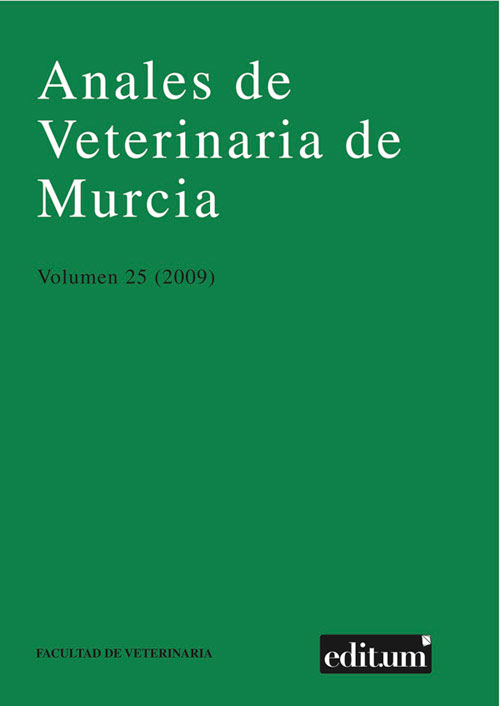Assessment of aglepristone in dogs with mammary tumors stage V
Abstract
Pulmonary metastasis of breast tumours is usually the cause of death in pets suffering a mammary gland neoplasm. This marks the importance of fi nding new treatments, focusing on the modulation of molecular targets, with a predominant in the stabilization or regression of metastasis disease. In this study included 20 dogs with mammary tumours in V clinical stage. The dogs were randomly placed in one of the following treatments. Aglespristone (Alizine ®, Virbac, France) (Agle, n = 10) or placebo (PLCB n = 10). Survival analysis by Kaplan-Meier method indicated that aglepristone not extended the median time of general survival (Agle. 13 days vs PLCB 14.5 days (P = 0.8). This application pattern in the aglepristone treatment in metastasis of canine breast tumours was not effective. Knowing the positive effects that some studies showed in mammary gland tumours treated with progesterone antagonist in other species; do not rule out that another treatment schedule might have a benefi cial effect on the female dog.Downloads
-
Abstract5247
-
PDF (Español (España))800
Creative Commons Attribution 4.0
The works published in this journal are subject to the following terms:
1. The Publications Service of the University of Murcia (the publisher) retains the property rights (copyright) of published works, and encourages and enables the reuse of the same under the license specified in paragraph 2.
© Servicio de Publicaciones, Universidad de Murcia, 2019
2. The works are published in the online edition of the journal under a Creative Commons Attribution-NonCommercial 4.0 (legal text). You can copy, use, distribute, transmit and publicly display, provided that: i) you cite the author and the original source of publication (journal, editorial and URL of the work), ii) are not used for commercial purposes, iii ) mentions the existence and specifications of this license.

This work is licensed under a Creative Commons Attribution-NonCommercial-NoDerivatives 4.0 International License.
3. Conditions of self-archiving. Is allowed and encouraged the authors to disseminate electronically pre-print versions (version before being evaluated and sent to the journal) and / or post-print (version reviewed and accepted for publication) of their works before publication, as it encourages its earliest circulation and diffusion and thus a possible increase in its citation and scope between the academic community. RoMEO Color: Green.




